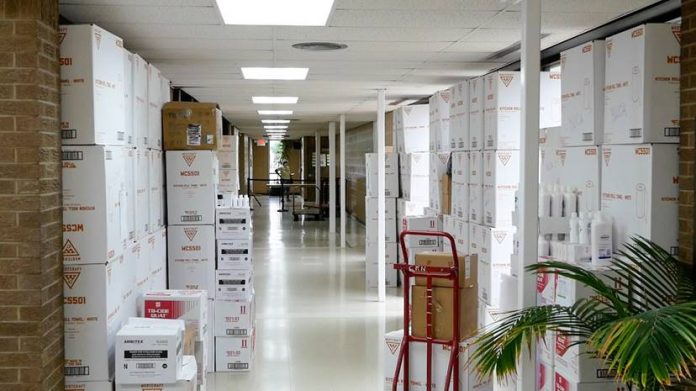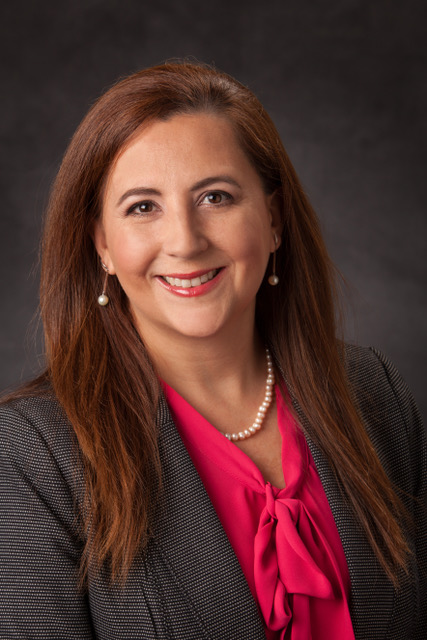Only seven states—Connecticut, Florida, Maryland, Louisiana, New Hampshire, New Mexico and New York—have ongoing, required testing of residents, staff or both.
“What we’ve done in testing in nursing homes and assisted living is a total disaster,†said Brian Lee, director of Families for Better Care, a nursing home advocacy group, and a former long-term care ombudsman in Florida.
“No one is getting it right. No one. Not a single state. Our nation gets a failing grade in testing in nursing homes.â€
In May, the Centers for Medicare and Medicaid Services recommended that long-term care facilities test staff and residents weekly but largely left states on their own to carry it out. In 32 states, at least one round of testing of all long-term care residents and staff has been mandated. In four others, only staff testing has been required.
But a negative test result is useful only for a few days, and many infected people are asymptomatic, so testing should be repeated to get a true sense of the virus’ spread, experts say. Facilities also face delays in getting results back, which further hampers efforts to protect the vulnerable population.
“We knew early on, before the virus even came to this country, that people over 80 with pre-existing conditions were most susceptible,†said Dr. David Gifford, chief medical officer of the American Health Care Association/National Center for Assisted Living. The Washington, D.C.-based group of affiliated state organizations represents more than 14,000 long-term care facilities.
“That’s who we take care of,†he said. “We’ve been asking for testing.â€
Delayed Results
As a new surge of cases afflicts the country, leaders of long-term care facilities worry it will hurt their residents.
“Academic research shows with an increase in the community spread you see the potential for spread into a facility,†said Kevin Warren, president and CEO of the Texas Health Care Association.
In Texas, residents have been ordered to stay in their facilities without visitors for 18 weeks and counting, Warren said. But staff have families to care for and errands to run, and community spread puts them at greater risk of infection.
On top of that, the American Laboratory Association recently said member labs reported delayed turnaround times because of rising demand for tests in the South, Southwest, and West.
Those delays carry over into long-term care. Of roughly 1,400 American Health Care Association and National Center for Assisted Living members surveyed at the end of June, more than half reported problems with lab processing of tests. Over 60% said results are taking up to four days, and nearly a quarter said results take five days or longer.
“Our concern is that unless you have widespread availability of testing with rapid results it is very, very hard to begin to talk about how to control this virus,†said the group’s Gifford.
He and other advocates criticized the lack of federal oversight, particularly on the supply chain for testing materials.
States continue to compete with one another, and now must compete with others ramping up testing such as companies, professional sports teams and universities.
“Not only do we need testing of cases, but the whole country is trying to open up again,†said Dr. Rebecca Wurtz, an infectious disease physician and associate professor at the University of Minnesota.
“We don’t have the capacity,†Wurtz said. “We can’t seem to surge the capacity where there’s a surge in cases.â€
State-by-State Approach
Even in states that have done baseline testing, there have been challenges.
Mark McKenzie, CEO of Focused Post Acute Care Partners, which runs 31 long-term care facilities across Texas, said the statewide baseline testing had problems. At some facilities, results started taking 16 to 21 days, and tests from four facilities had to be thrown out after a Houston lab had an abnormal number of false positives.
So the company started a contract with a private lab to test the roughly 2,000 residents and 2,200 staff regularly. “We can control the timing,†McKenzie said. “Currently it’s at our cost. It isn’t the most economical way to do it.â€
He said he hasn’t seen a bill yet but estimates the cost will be around $300,000 a week. His company has received stimulus money, but he expects to run through it quickly.
“We have no choice,†he said of the testing. “Right now, so we can get a handle and stay as even or somewhat ahead of the process, we are committed to doing that.â€
In Arizona, the state health department partnered with Sonora Quest Laboratories to do a baseline test of all residents and staff of long-term care facilities by early June. Staff who tested negative took an antibody test.
According to state health department data, individuals 65 and older account for 11% of cases and 73% of deaths statewide. The state is one of nine that have not shared data on deaths at long-term care facilities, according to the Kaiser Family Foundation.
David Voepel, director of the Arizona Health Care Association, a membership group of long-term care facilities, said the state-funded testing gave a good baseline but the state needs a plan for moving forward.
“CMS recommends that you do weekly testing of staff,†he said, referring to the Centers for Medicare and Medicaid Services. “We don’t have the ability. A lot of facilities don’t have that ability because that’s a lot of money going out.â€
In the initial Arizona testing round, a COVID-19 test and an antibody test cost roughly $150 a person, or close to $4 million for about 27,000 residents and staff, Voepel said.
“We’re wondering, is the state going to pay for it? Does the state have a plan for us to do this?†Voepel said. The state’s health department did not respond to a request for information about plans for more long-term care testing.
A few states have focused their efforts on testing staff, a move some experts say might be even more important than testing residents since, in most places, visits have been off-limits for months.
“Staff is going in and out. They’re going home, going to the grocery store. They could get infected tomorrow,†said Toby Edelman, a senior policy attorney with the Center for Medicare Advocacy. “It’s not ‘you get tested once and you’re done.’
“If we’re not testing them,†she added, “that’s a serious problem.â€
Florida finished testing all residents and staff in mid-June. Shortly thereafter, Republican Gov. Ron DeSantis ordered continued testing of staff every two weeks.
“I think testing is really critical. It helps our facilities with making clinical decisions,†said Kristen Knapp, spokesperson for the Florida Health Care Association. “This virus presents itself in people with no signs or symptoms.â€
The state has said results will come back in 48 hours, and Knapp said she’s hopeful that will be the case. The first testing round ended July 10. Florida’s health department did not respond to a request for comment on the results.
And more testing will allow facilities to have visitors again, she said.
Rapid Testing
Some experts and advocates say the solution is rapid testing.
Of the 173 tests approved by the Food and Drug Administration, six are considered rapid tests, meaning they return results while a patient waits rather than being sent to a separate location for laboratory processing, according to agency spokeswoman Nicole Mueller.
However, the FDA says rapid tests have a higher chance of missing an active infection, and providers may order the slower type of test to confirm a negative result.
“The sad thing is, we have the technology,†said Lee of Families for Better Care. “We have the solution to achieve robust testing in nursing homes, but for some reason, we aren’t doing it.â€
Texas Gov. Greg Abbott, a Republican, recently said the state is working with Omnicare, a CVS Health company, to provide on-site, same-day testing and results for facility staff and residents.
“[Testing] is critical given the nature of the virus and what happens with the elderly,†said Warren of the Texas Health Care Association. “It’s critical that long-term care is a priority when it comes to testing.â€
In almost every state that has done baseline testing, the state has paid for it. But not everyone agrees on where the money should come from for more tests.
Abbott also recently announced that long-term care facilities could apply for grants for infection control from a pool of $9 million from civil penalties paid by Medicare- or Medicaid-certified nursing facilities to the Centers for Medicare and Medicaid Services. A portion of this money is returned to the state where the fine was imposed and can be used to benefit nursing-home residents.
Richard Mollot, executive director of New York City-based Long Term Care Community Coalition, said long-term care providers have a responsibility to provide a safe environment for residents.
“It’s an ongoing disaster across the country. People are in solitary confinement,†he said. “It’s completely outrageous that we’ve been in this situation for four months. It should be completely unacceptable.â€










